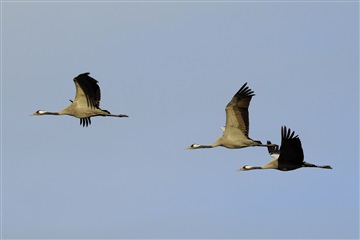New figures show Cranes continue to recover after going extinct in the UK 400 years ago. In today’s blog Andrew Stanbury, RSPB Conservation Scientist, takes us through their comeback and how conservation action has played a vital role.

Credit: Nick Upton (rspb-images.com)
All too often in nature conservation, stories are full of doom and gloom; highlighting species in steep decline. However, today is World Wetland…